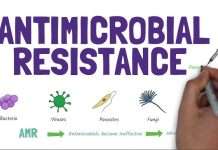The coronavirus vaccine developed by drug firm AstraZeneca and Oxford University has been approved for use in Britain, the government said on Wednesday, adding the mass rollout will start on January 4.
The vaccine can be stored, transported and handled at normal refrigerated conditions, and is, therefore, cheaper and easier to administer than the Pfizer/BioNTech and Moderna jabs that require freezing.
Britain will become the first nation to roll out the jab on January 4, Health Secretary Matt Hancock said, amid mounting concerns that another dangerous spike in infections threatens to overwhelm the NHS.

“Brilliant to end 2020 with such a moment of hope,” tweeted Hancock.
“The #coronavirus vaccine is our way out of the pandemic – now we need to hold our nerve while we get through this together.”
The government said in a statement earlier that it had “today accepted the recommendation from the Medicines and Healthcare products Regulatory Agency to authorise Oxford University/AstraZeneca’s COVID-19 vaccine for use.
“This follows rigorous clinical trials and a thorough analysis of the data by experts at the MHRA, which has concluded that the vaccine has met its strict standards of safety, quality and effectiveness,” said the Department of Health and Social Care spokesman.
On Sunday, AstraZeneca’s Chief Executive Pascal Soriot said the vaccine provides “100 per cent protection” against severe COVID-19 disease requiring hospitalisation.
He predicted trials would show his firm had achieved a vaccine efficacy equal to Pfizer-BioNTech at 95 per cent and Moderna at 94.5 per cent.
Earlier trials had shown varying outcomes in the AstraZeneca shot’s efficacy.
The vaccine initially showed an average of 70 per cent effectiveness but that level jumped to 90 per cent depending on the dosage regime.
Behind this average figure from large-scale trials in the UK and Brazil was a 62 per cent effectiveness for those who were vaccinated with two full doses of the shot.
For volunteers who received a half-dose first and then a full dose one month later, however, the vaccine was found to have 90 per cent efficacy.
(AFP)











india pharmacy mail order: https://genericwdp.com/ india pharmacy mail order
what is tadalafil: http://tadalafilonline20.com/ what is tadalafil
discount tadalafil – buy tadalafil 20mg price tadalafil professional
Step forward,I hope d clinical trials were done in Africa,considering d genetic differences